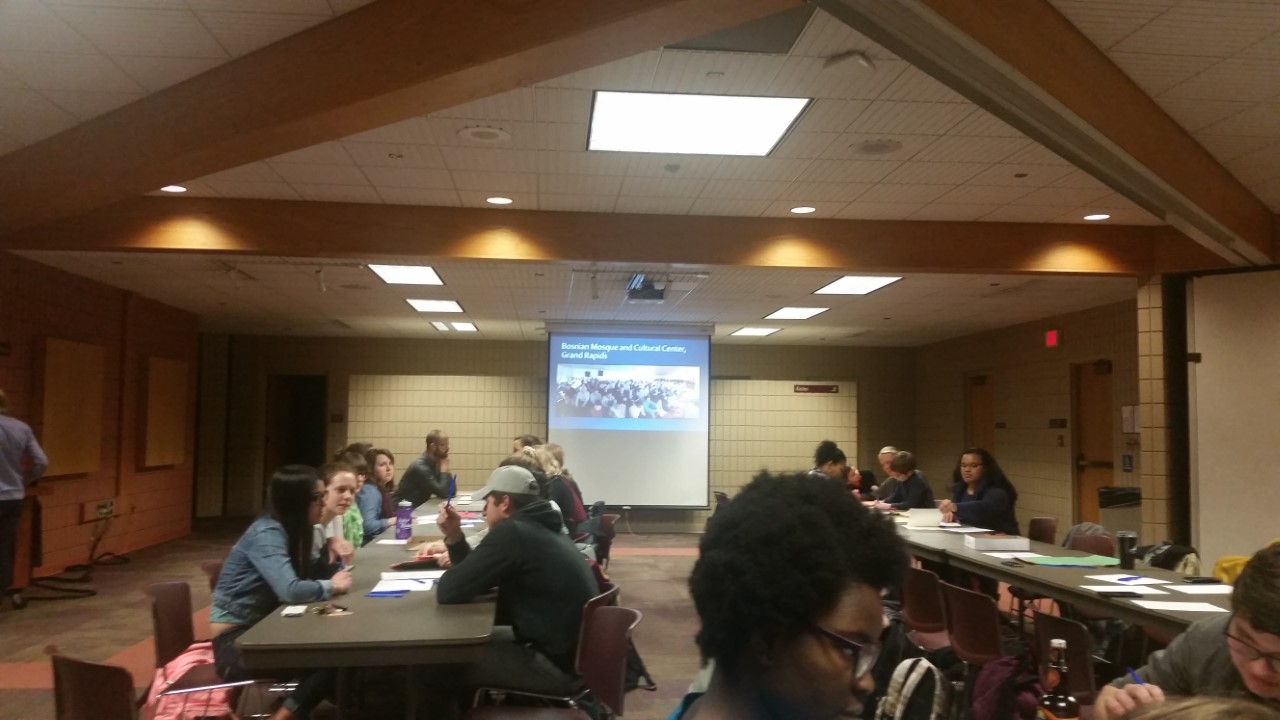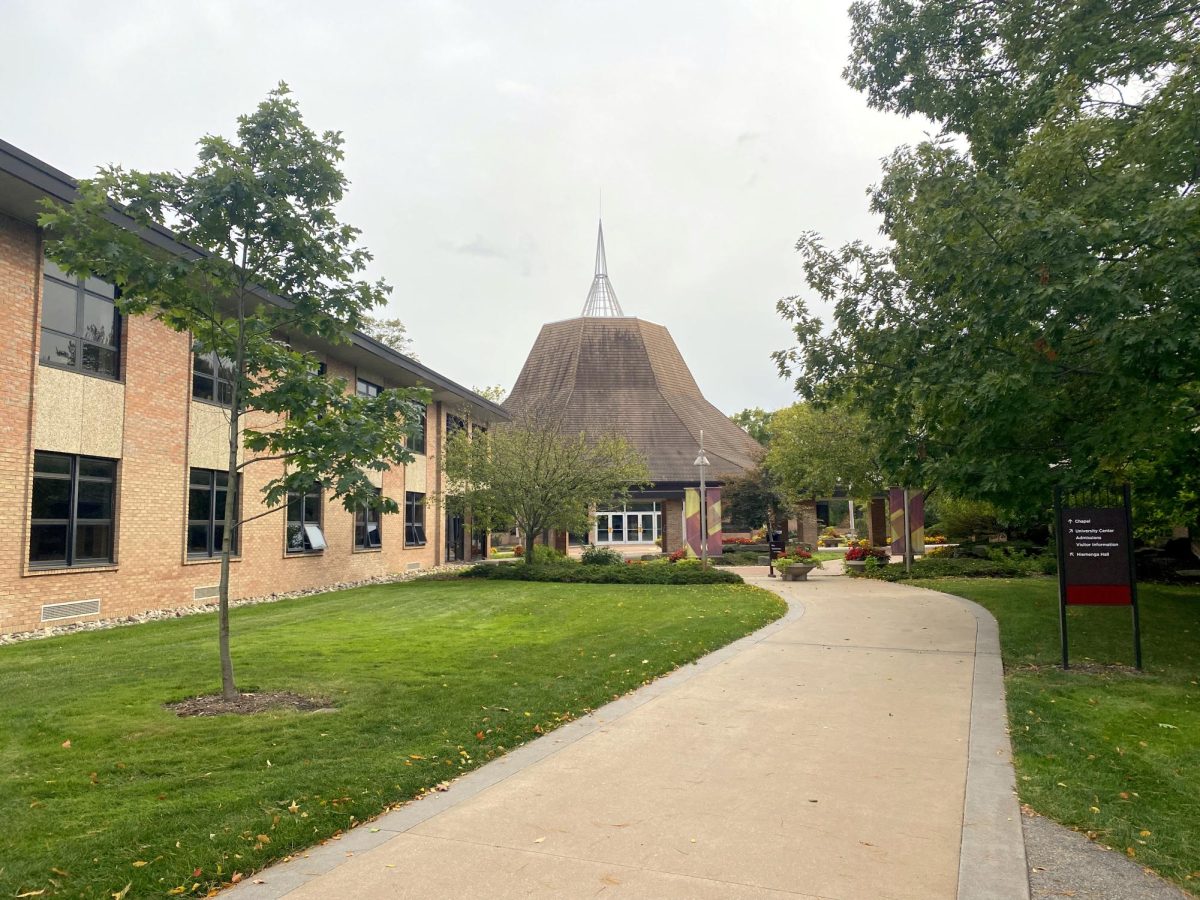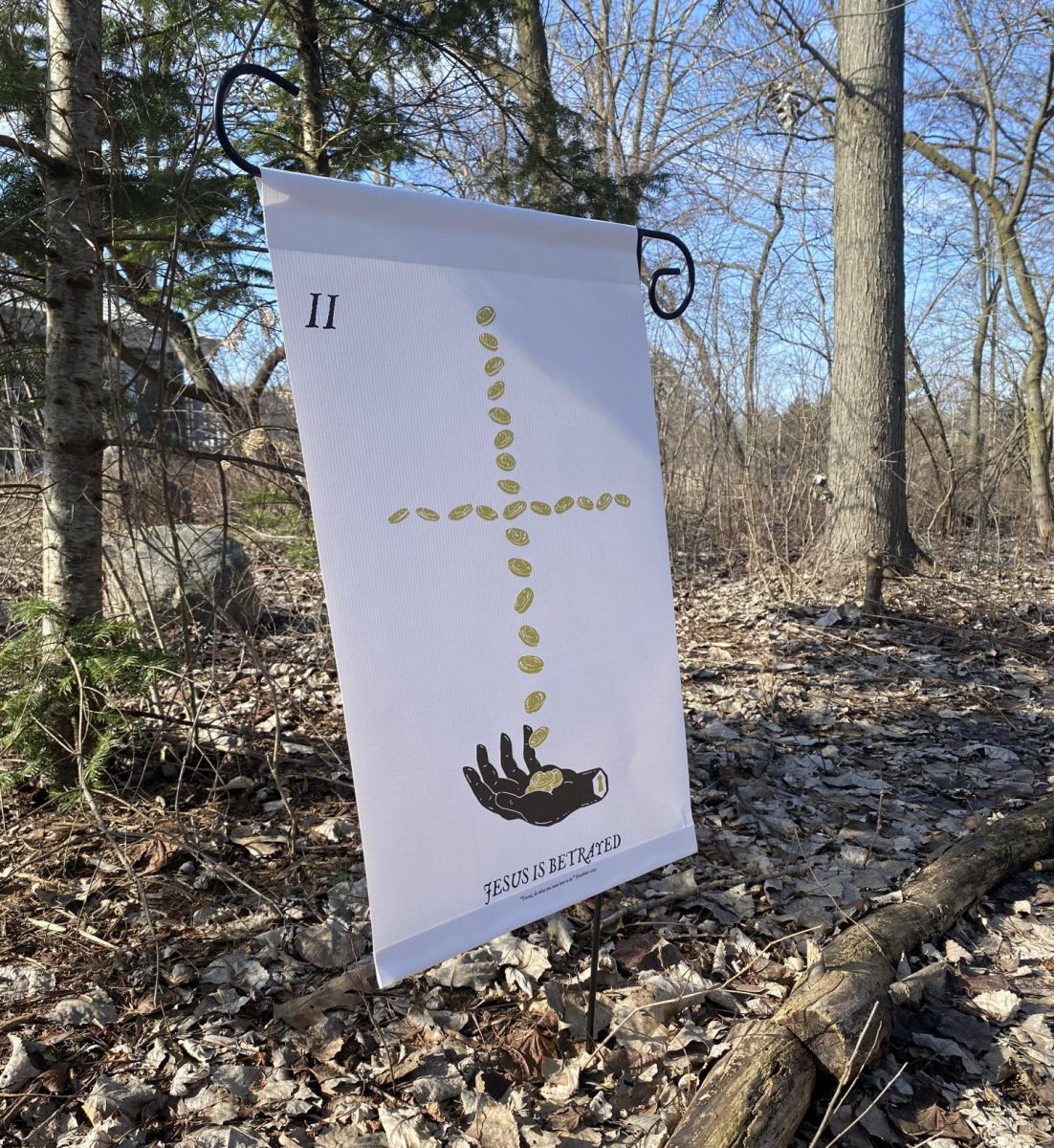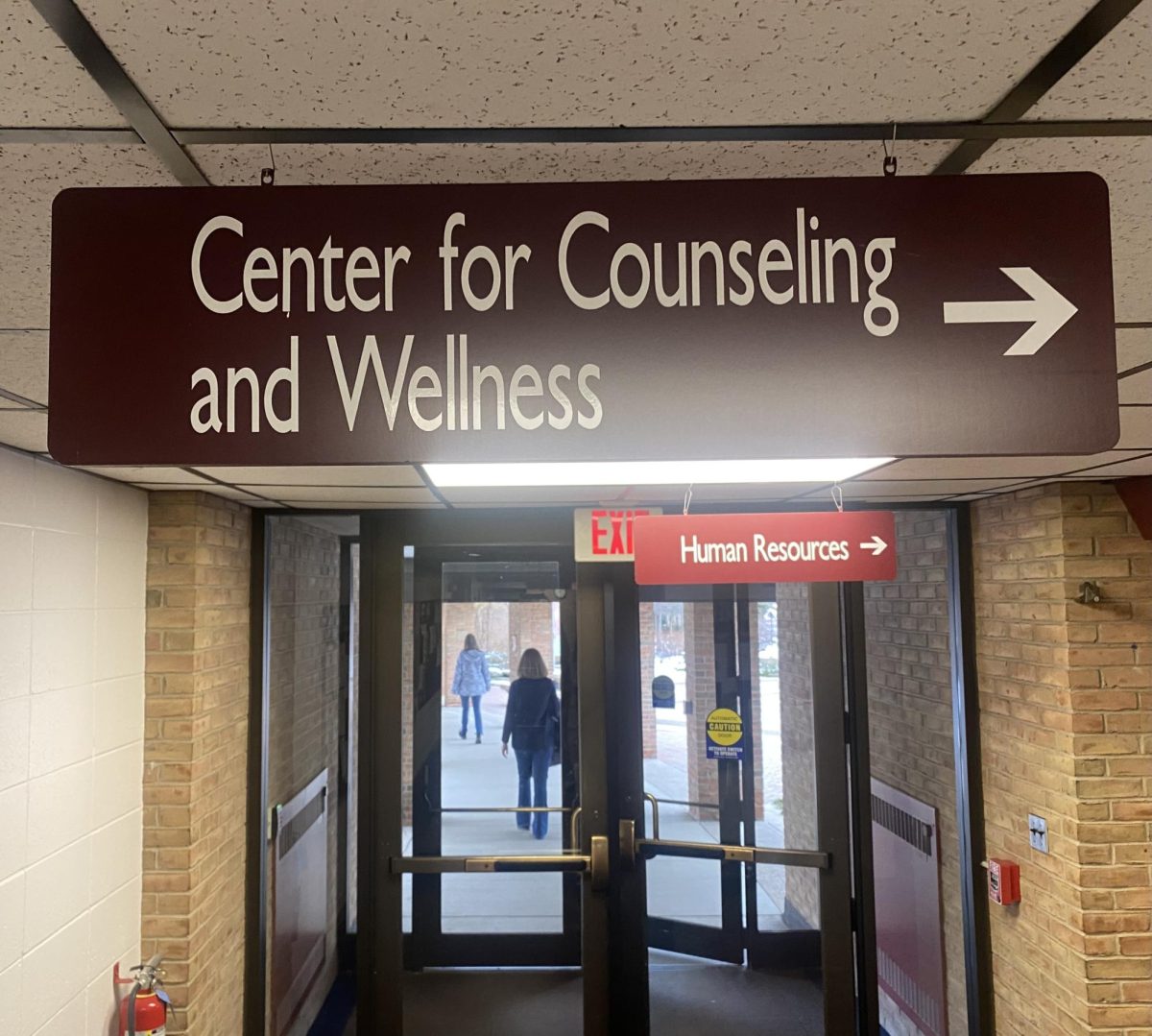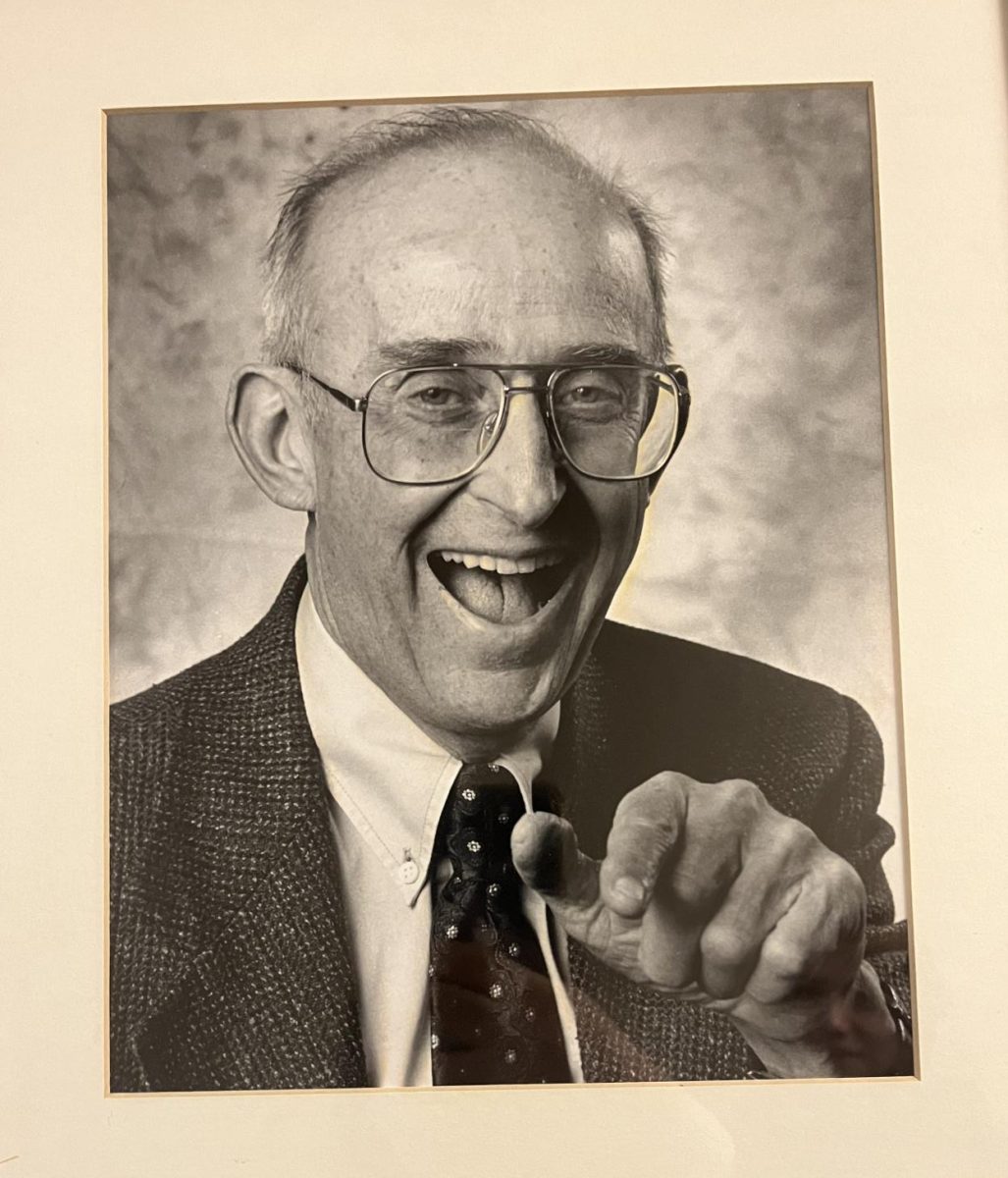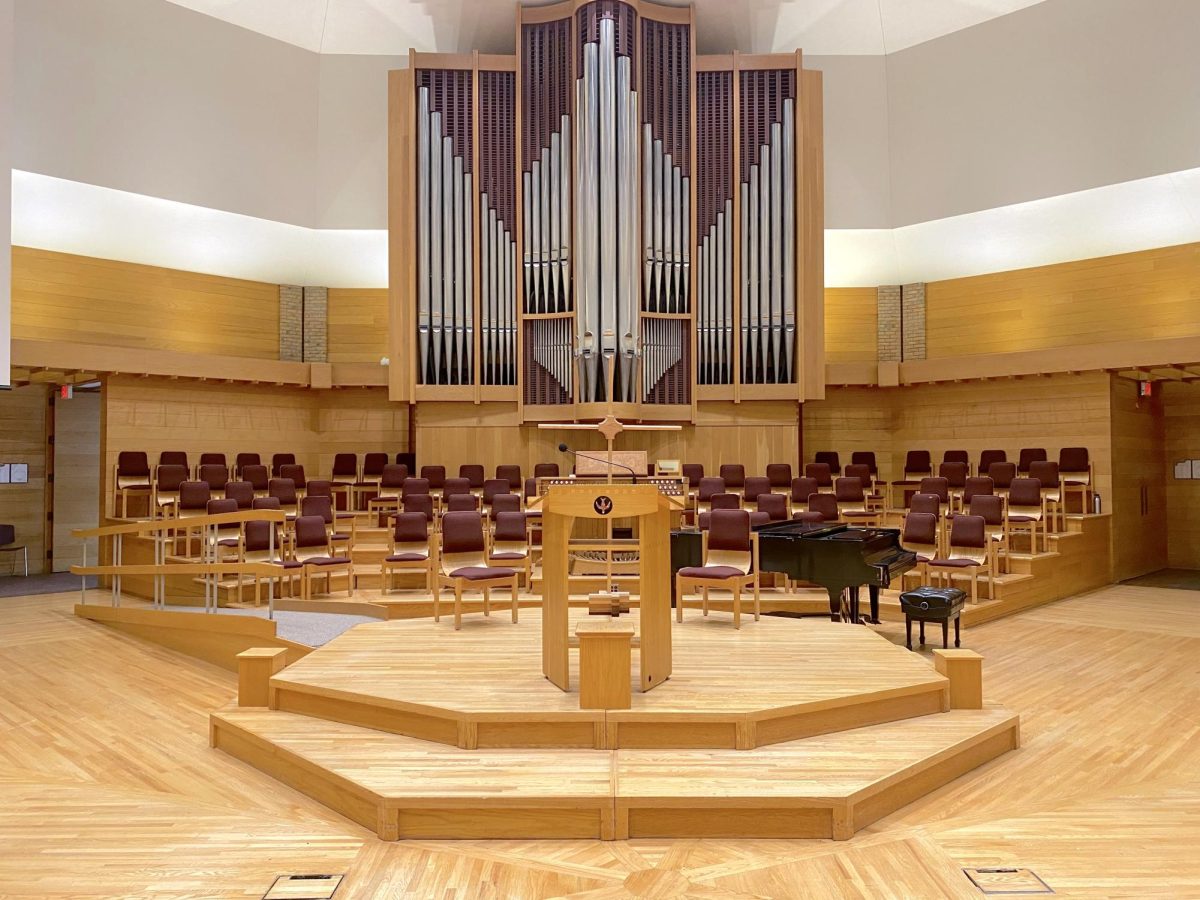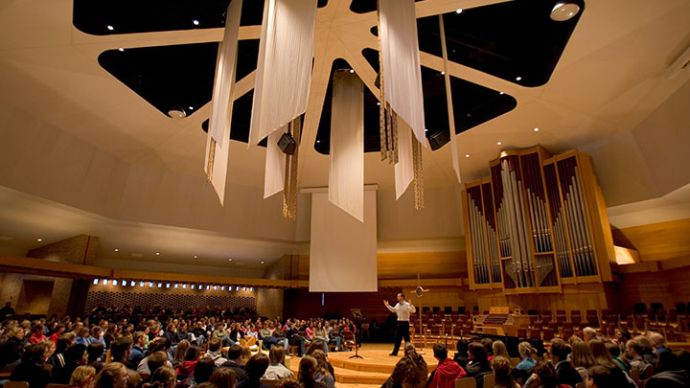Students, faculty and staff members filled the Chapel Undercroft last Tuesday to write letters of solidarity in response to hate crimes against minority religious communities. Sharing a meal catered by a local, family-owned Mediterranean grill, members of the Calvin community crafted letters to religious communities including the Islamic Cultural Center Behar, Bosnian Cultural Center, Temple Emanuel and Sikh Society of West Michigan.
The history department, student senate, office of off-campus programs, Middle East Club and service-learning center came together to sponsor this event.
The evening emphasized the importance of community, diversity and human rights. To frame the events of the evening, Matthew Lundberg of the religion department shared two perspectives on what interfaith means at Calvin.
“One school of thought on interfaith and what it means to show interfaith support is that Christians ought to be purely guided by their sense that Christ as the unique way to salvation,” said Lundberg. “The other school of thought says, in dire times when people’s lives are being upended. … Christians shouldn’t worry nearly as much about theological niceties. It’s a time to err on the side of solidarity and acceptance.”
Students were equipped with writing supplies and instruction sheets that included ideas for letter content. The sheets prompted students to “denounce recent hate crimes, violence and discrimination,” to “state that you care about human rights and religious freedom” and to “write about any experiences with Islam/Judaism/Sikhism that have edified you and influenced your desire to protect and love your neighbors.”
Many students were grateful for the opportunity to express their support for local religious communities; sophomore Young Kim said, “I felt like I was connecting with people on a very deep, human level. Maybe it was because I was writing on paper, rather than seeing text on a screen, but I felt really connected.”
Maaike Mudde, an interfaith intern at Calvin who was inspired to plan this event, said, “I really hope these letters affirm [the recipients’] contributions and place in our community, and say that their religious communities are just as valuable as Christian communities. I hope they know that they’re not alone, know that they’re being thought of as we see a rise of hate crimes and discrimination.”
Mudde said Calvin has already begun to form relationships with these religious centers through interfaith events and site visits. In addition to attending future interfaith events, such as the upcoming Passover seder at the end of this month, Mudde said students can continue to respond to Islamophobia and anti-Semitism by learning about other religions, forming relationships with those of other faiths and understanding one’s own religious identity.
According to Mudde, you cannot effectively engage in interfaith dialogue until you “understand who you are as a Christian, what you value and practice.”
“When you have contact with people, you build relationships and you start to understand what they believe, why they believe it, and their practice and way of life,” said Mudde. “That’s what really fights discrimination.”




